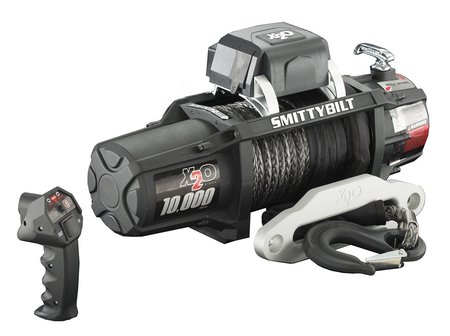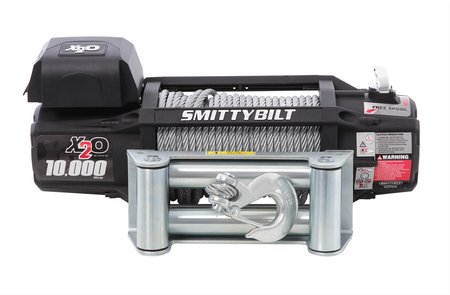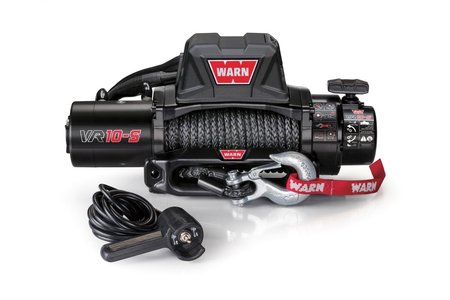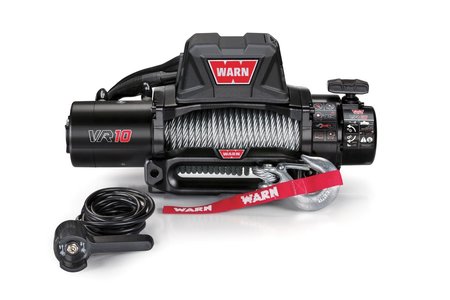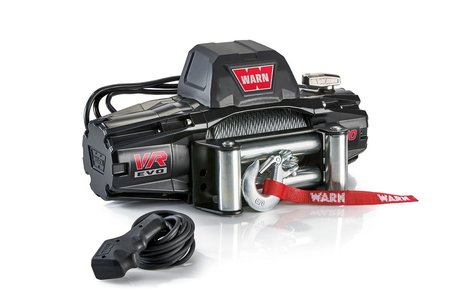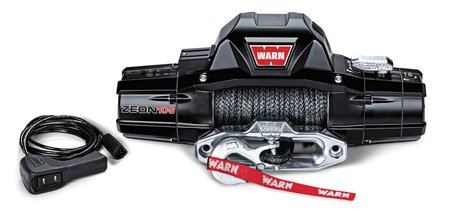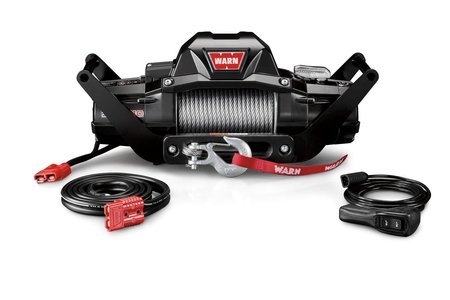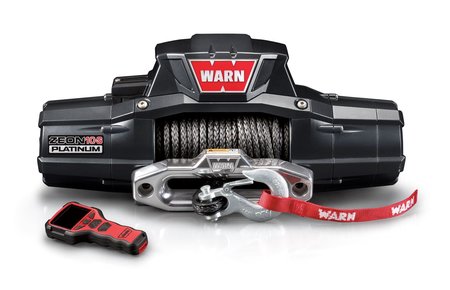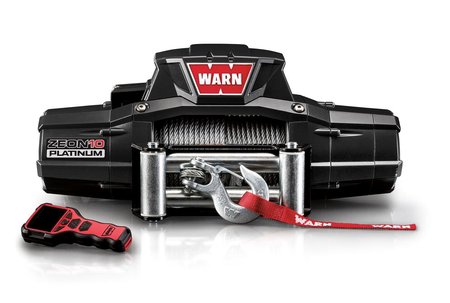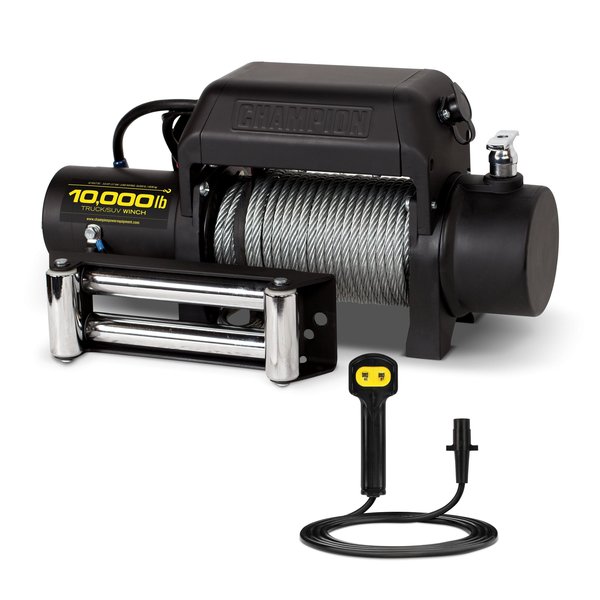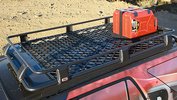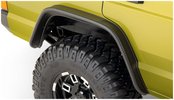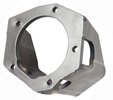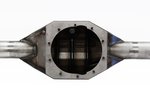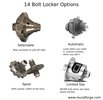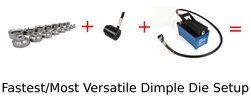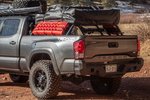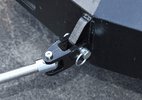The Best 10000 lb Winches
It's time to choose a 10000 lb winch. But which one is best?
Are you getting a good deal?
We'll take a look at the 10000 lb winches and tell you which ones to buy and which to avoid.
- The Contenders
- Quick Specs
- Smittybilt Gen2 X2O Comp 10000 and X2O 10000 (Synthetic and Steel)
- Tuff Stuff Econo 10000 (Steel only)
- Warn Gen 2 VR10-S and VR10 (Synthetic and Steel)
- Warn Gen 3 VR EVO 10-S and VR EVO 10 (Synthetic and Steel)
- Warn Zeon 10-S and Zeon 10 (Synthetic and Steel)
- Warn Zeon 10-S Platinum and Zeon 10 Platinum (Synthetic and Steel)
- Champion 10000 lb. (Steel only)
- Let's Talk About You
- Where Are These Winches Made?
- 10000 lb Synthetic Winch Rope Winches vs. Steel Cable Winches
- Does your 10K lb winch need to be waterproof?
- Wired vs. Wireless Remote
- 10000 lb Winches: Performance Comparison
The Contenders
There are not many true 10000 lb winches out there.
You might find that you can go down in size to a 9500 lb winch, but we aren't going to look at 9500 lb winches in this article - it's 10000 lb-ers only.
The list of winches we'll be looking at is:
- Smittybilt Gen 2 X2O Comp 10000 (98510) and X20 10000 (97510)
- Tuff Stuff Econo 10000 (TS-10000-EC)
- Warn Gen 2 VR10-S and VR10 (96815 and 96810)
- Warn Gen 3 VR EVO 10-S and VR EVO 10 (103253 and 103252)
- Warn Zeon 10-S and Zeon 10 (89611 and 88990)
- Warn Zeon 10-S Platinum and Zeon 10 Platinum (92815 and 92810)
- Champion 10000 lb (11008)
You might be wondering where the Warn M10000 winch is. It was a standard winch, but it was discontinued a few years ago.
Some recommendations
If you want a cheap winch with good specs, look at the Smittybilt X2O Comp 10000.
This winch has good performance specs, is inexpensive, waterproof, and comes with a wired and wireless remote. Smittybilt has upped their game over the years and this is a solid choice if this is your price range.
If you want a strong, long-lasting winch with lots of machined in the USA parts, we recommend the Warn Zeon 10-S.
Of all the winches here the Zeon and Zeon Platinum are the only ones assembled in the USA. They will be more reliable than Chinese-made winches and are long-lasting enough that they'll probably become family heirlooms. The Zeon line are some of the fastest 10000 lb winches you can buy. We prefer the wired remote on the plain Zeon over the wireless-only Zeon Platinum.
If you want a Warn, but can't afford a Zeon, get a Warn VR EVO 10-S. This winch is made in China to Warn's standards. It's fully waterproof, has a wired/wireless remote, and has the lowest amp draw of our contenders at full load.
Let's get into the details.
Quick Specs
Smittybilt Gen2 X2O Comp 10000 and X2O 10000 (Synthetic and Steel)
This is just like the steel cable version of the X20, but has a synthetic winch rope and aluminum hawse fairlead.
Pros:
- Inexpensive
- Fastest full load line speed
- Highest pulling power per cable layer
- Wireless and wired remote
Cons:
- Smaller winch drum wears winch cable faster
- Some units not greased well
| Synthetic rope version | Steel cable version | |
|---|---|---|
| Winch line | 98.5' 3/8" Synthetic | 98.5' 3/8" Steel |
| Waterproof? | Fully (IP68) | Fully (IP68) |
| Remote type | Wireless and Wired | Wireless and Wired |
| Fairlead | Aluminum hawse | Steel roller |
| Fastest speed (no load) | 31.1 ft/min | 31.1 ft/min |
| Speed at full load | 7.38 ft/min (fastest overall) | 7.38 ft/min (fastest overall) |
| Amp draw at full load) | 380A | 380A |
| Gear Ratio | 218:1 | 218:1 |
| Control pack | Solenoid | Solenoid |
| Price |
Tuff Stuff Econo 10000 (Steel only)
Pros:
- Cheap
Cons:
- Extremely low pulling power per cable layer stats
- Not waterproof
- No wireless remote
- Specs look off
| Winch line | 80' 5/16" Steel |
|---|---|
| Waterproof? | No |
| Remote type | Wired |
| Fairlead | Steel roller |
| Fastest speed (no load) | 40.39 ft/min |
| Speed at full load | 9.2 ft/min |
| Amp draw at full load) | 346A |
| Gear Ratio | 216:1 |
| Control pack | Solenoid |
| Price |
Warn Gen 2 VR10-S and VR10 (Synthetic and Steel)
Pros:
- Cheapest Warn 10000 lb winch
- Waterproof contactor pack
Cons:
- No wireless remote
- High amp draw for budget winch
- Slowest no-load line speed
| Synthetic rope version | Steel cable version | |
|---|---|---|
| Winch line | 90' 3/8" Synthetic | 80' 3/8" Steel |
| Waterproof? | No | No |
| Remote type | Wired | Wired |
| Fairlead | Steel hawse | Steel hawse |
| Fastest speed (no load) | 26 ft/min | 26 ft/min |
| Speed at full load | 2.3 ft/min | 2.3 ft/min |
| Amp draw at full load) | 502A | 502A |
| Gear Ratio | 216:1 | 216:1 |
| Control pack | Contactor | Contactor |
| Price |
Warn Gen 3 VR EVO 10-S and VR EVO 10 (Synthetic and Steel)
Pros:
- Fully waterproof
- Wired and wireless remote
- Lowest amp draw at full load
Cons:
- Pulls less weight per cable layer than previous VR
| Synthetic rope version | Steel cable version | |
|---|---|---|
| Winch line | 90' 3/8" Synthetic | 90' 9 mm" Steel |
| Waterproof? | Fully (IP68) | Fully (IP68) |
| Remote type | Wireless and Wired | Wireless and Wired |
| Fairlead | Steel hawse | Steel roller |
| Fastest speed (no load) | 27.1 ft/min | 27.1 ft/min |
| Speed at full load | 5.2 ft/min | 5.2 ft/min |
| Amp draw at full load) | 358A | 358A |
| Gear Ratio | 218:1 | 218:1 |
| Control pack | Contactor | Contactor |
| Price |
Warn Zeon 10-S and Zeon 10 (Synthetic and Steel)
Pros:
- Fully waterproof
- 2nd fastest no-load line speed
- Large winch drum decreases winch line wear
- Contactor pack
- Reliable
Cons:
- No wireless remote
| Synthetic rope version | Steel cable version | |
|---|---|---|
| Winch line | 100' 3/8" Premium synthetic | 80' 3/8" Steel |
| Waterproof? | Fully (IP68) | Fully (IP68) |
| Remote type | Wired | Wired |
| Fairlead | Aluminum hawse | Steel roller |
| Fastest speed (no load) | 33 ft/min | 33 ft/min |
| Speed at full load | 4.8 ft/min | 4.8 ft/min |
| Amp draw at full load) | 409A | 409A |
| Gear Ratio | 216:1 | 216:1 |
| Control pack | Contactor | Contactor |
| Price |
Warn Zeon 10-S Platinum and Zeon 10 Platinum (Synthetic and Steel)
Pros:
- Fastest no-load line speed
- 2nd fastest full load line speed
- Remote-controlled clutch lever
- Reliable
- Battery voltage and winch temperature sensors
- Large winch drum decreases winch line wear
Cons:
- Expensive
- No wired remote
| Synthetic rope version | Steel cable version | |
|---|---|---|
| Winch line | 100' 3/8" Premium synthetic | 80' 3/8" Steel |
| Waterproof? | Fully (IP68) | Fully (IP68) |
| Remote type | Wireless | Wireless |
| Fairlead | Aluminum hawse | Steel roller |
| Fastest speed (no load) | 44 ft/min | 44 ft/min |
| Speed at full load | 5.6 ft/min | 5.6 ft/min |
| Amp draw at full load) | 465A | 465A |
| Gear Ratio | 162:1 | 162:1 |
| Control pack | Contactor | Contactor |
| Price |
Champion 10000 lb. (Steel only)
Pros:
- Cheap
Cons:
- Slowest no-load linespeed
- 2nd slowest full load linespeed
- Not waterproof
- No wireless remote
| Winch line | 85' 3/8" Steel |
|---|---|
| Waterproof? | No |
| Remote type | Wired |
| Fairlead | Steel roller |
| Fastest speed (no load) | 15.7 ft/min |
| Speed at full load | 3.9 ft/min |
| Amp draw at full load) | 400A |
| Gear Ratio | 216:1 |
| Control pack | Solenoid |
| Price |
Let's Talk About You
You need to figure out how you're going to use your winch to pick the best one.
- Will you use it every weekend on the trail?
- Are you competing in a rock race?
- Are you driving dirt roads to Patagonia over a year?
- Will you use it once a month around your farm?
If you need a farm winch, you probably won't care about fancy controls or waterproofing like you might if you were trekking through Costa Rica jungle roads.
Some features to think about are:
- Waterproofing
- Wired vs. wireless remote control
- Synthetic winch rope vs. steel cable
- Pulling power per layer of winch line (important but often ignored)
- Amp draw
- Solenoids or Contactors
We'll talk about features below, but first let's talk about your rig and how a 10000 lb is going to fit.
Is 10000 lbs the right size winch?
Manufacturers recommend picking a winch that's 1.5 to 2 times the GVWR of your 4x4. You can often find the GVWR on the door jamb of your rig with the VIN info.
For a 10000 winch, this means that your GVWR shouldn't be more than about 6700 lbs. (6,700 x 1.5 = 10,050)
GVWR is really just the maximum weight your rig will be with passengers, fuel, tools, gear, all your mods, etc. You can use a little judgment if you know what you're doing:
If you have a stripped down, bobbed, flatbed Dodge Ram pickup that'll you might be able to go with a lighter winch. If you have a expedition-outfitted, loaded-for-3 weeks-of-backcountry crew cab Ford pickup that exceeds the GVWR, you probably need a heavier winch.
Will a 10000 lb winch fit your winch bumper?
Usually, yes.
All the winches we'll look at have a 10" x 4.5" mounting pattern. This means that the winch feet bolt holes are 10" side-to-side and 4.5" front-to-back, on center.
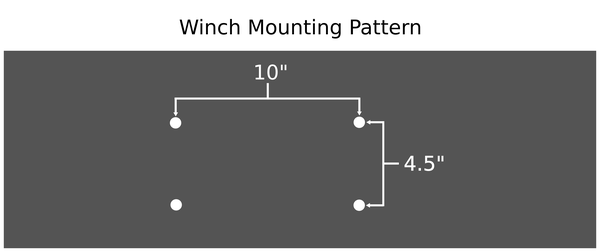
Most winches use this mounting pattern.
All winch bumper manufacturers use these measurements when they design a bumper.
Your Bumper: Foot forward vs. Foot down
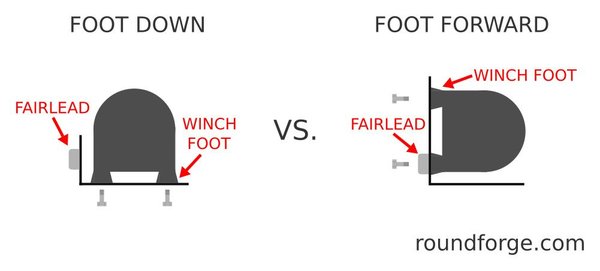
These are two orientations that winches can be mounted. Some winches can be mounted ONLY foot-down or ONLY foot-forward. Some can be mounted foot-down OR foot-forward. And some NEED to be mounted foot-down AND foot-forward.
Bumpers usually mount a winch either with a horizontal mounting plate (foot down) or a vertical mounting plate (foot forward).
Make sure the winch you buy can be mounted in the orientation that's correct for your bumper! If you mount it incorrectly, you can break the winch casing.
Fortunately, most winches can be mounted foot-forward or foot-down.
Next: sometimes you have physical interference problems:
Winch Physical Interference : What to Do About It
Some winch bumpers are meant to hold winches fairly tight up against the bumper and grill. This can be an issue depending on the design of the casing of the winch. This can:
- Make the control box not fit
- Make the motor terminals contact the bumper or body
- Make the clutch handle contact the bumper or body
But you can fix this.
Most winches can be "clocked" - the motor housing or gear housing can be rotated in relation to the winch feet.
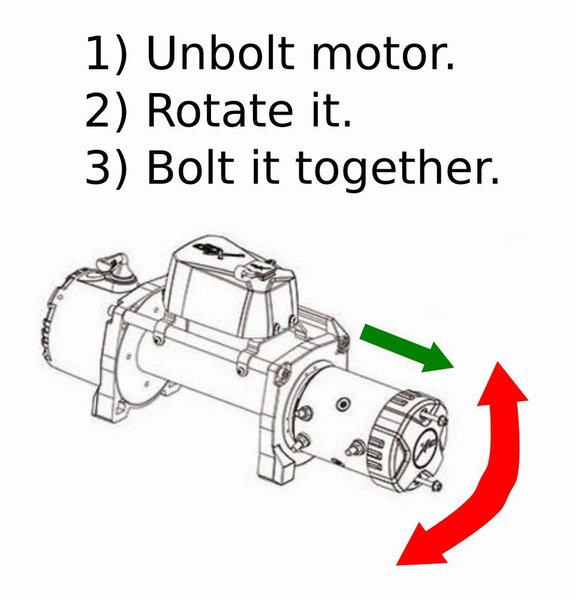
It's pretty easy to clock most winch motors or gearboxes: Unbolt, rotate, re-bolt. This can help with tight motor terminal or gearbox handle clearances.
Occasionally, you'll have a problem with your control box. Control boxes can often be mounted in at least 2 positions from the manufacturer.
In extreme cases, you can extend the control box cables and mount it elsewhere on your bumper or even in your engine compartment.
Where Are These Winches Made?
Except for the Warn Zeon and Warn Zeon Platinums, every winch on this list is made in China.
The Warn Zeon and Zeon Platinum winches are assembled in the US with some overseas parts. If you want a made-in-America 10000 lb winch, this is as close as you're going to get. FYI, this is true of the vast majority of winches.
This is good and bad.
Let's look at some pros and cons:
- Quality of foreign winches can be just fine.
- Parts availability is usually worse for Chinese winches, although Warn is very good at stocking parts for all the winches they produce, even very old models.
- Prices for China-built winches are generally very low. Zeon winches are extremely well-built, but they cost more.
If you really want a made-in-America winch, your best option is to buy an old winch (probably a Warn) and rebuild it.
10000 lb Synthetic Winch Rope Winches vs. Steel Cable Winches
| Has Synthetic Winch Rope | Has Steel Cable |
|---|---|
| Smittybilt Gen 2 X2O Comp 10000 (PN 98510) | Smittybilt Gen 2 X2O 10000 (PN 97510) |
| Warn Gen 2 VR10-S (96815) | Warn Gen 2 VR10 (96810) |
| Warn Gen 3 VR EVO 10-S (103253) | Warn Gen 3 VR EVO 10 (103252) |
| Warn Zeon 10-S (89611) | Warn Zeon 10 (88990) |
| Warn Zeon Platinum 10-S (92815) | Warn Zeon Platinum 10 (92810) |
| Tuff Stuff Econo 10000 (PN TS-10000-EC) | |
| Champion 10000 lb (11008) |
You have two options for winch line:
- Steel cable
- Synthetic winch rope
Let's talk about their qualities:
Steel cable:
- is heavy
- is abrasion-resistant
- is weaker than the same size synthetic
- can't be easily spliced
- can be dangerous if it breaks
Synthetic winch rope:
- is lightweight
- is not abrasion-resistant
- is stronger than steel cable
- can be spliced
- is not as dangerous when it breaks
- is sensitive to sunlight and heat
Our recommendation: Go with synthetic if you can afford it. It costs more money, but it's easier to handle, stronger, and safer.
Synthetic winch line usually comes with an abrasion sleeve to protect it from dirt and rocks, and some winches use a heat sleeve to keep it cooler on the drum. Use a winch cover to protect it from the sun.
Steel is great, but it's weaker than synthetic, can whip when it breaks, and it adds quite a bit of weight to your winch.
Most manufacturers have both a synthetic and a steel cable version of their winches. Usually the steel cable version uses a steel roller fairlead. The synthetic version usually uses an aluminum hawse fairlead.
It's worth mentioning that "cheap" synthetic winches can cost less than "premium" steel cable winches.
Does your 10K lb winch need to be waterproof?
| Winch | Control Pack Type | Control Pack Rating | Motor and Gear Case Rating |
|---|---|---|---|
| Smittybilt Gen 2 X2O Comp 10000 and X2P 10000 (97510 and 98510) | Solenoid | IP68 | IP68 |
| Tuff Stuff Econo 10000 (TS-10000-EC) | Solenoid | None | None |
| Warn Gen 2 VR10-S and VR10 (96815 and 96810) | Contactor | IP68 | None |
| Warn Gen 3 VR EVO 10-S and 10 (103253 and 103252) | Contactor | IP68 | IP68 |
| Warn Zeon 10-S and 10 (89611 and 88990) | Contactor | IP68 | IP68 |
| Warn Zeon Platinum 10-S and Platinum 10 (92815 and 92810) | Contactor | IP68 | IP68 |
| Champion 10000 lb (11008) | Solenoid | None | None |
Waterproofing never really used to be a concern, but now it's a major feature of some winches.
So let's talk IP ratings:
Winches can have one of three ratings:
- No rating: It was like this for years, even with old Warns.
- IP67: Dust tight and can be immersed for 30 minutes with the lowest part of the winch 1 meter below the surface.
- IP68: Dust-tight and can be immersed for a time determined by the manufacturer with the lowest part of the winch at a depth determined by the manufacturer (generally 3 meters below the surface).
An IP68 rating can still permit water to enter the winch, but it must still perform as designed, and it must perform better than if it was IP67-rated.
So, the best rating you can get is IP68, although the manufacturer often defines what this is.
What breaks when your 10000 lb winch gets wet?
There are 3 vulnerable points for winches when it comes to water:
- Control pack
- Motor
- Gearbox
On the trail, your biggest concern should probably be the control pack. Control packs have either solenoids or contactors. Solenoids are old tech; contactors are new.
Winches with solenoids have 4 of them and each solenoid has 4 terminals. This means that a control pack with solenoids has 16 terminals that can corrode or allow water entry. Solenoids are electromechanical and it's common for them to fail.
If you use a winch with a solenoid pack, it's a good idea to carry some spare solenoids.
Contactor packs are solid state devices. Unlike a pack of individual solenoids, a contactor is just a sealed box with stuff inside that you can't access. Most contactor packs on winches have IP68 ratings (although non-rated contactor packs exist in the industrial world). Contactors can fail and you have to replace them as a unit.
Which should you choose?
Solenoids work fine, but you should carry spares. Contactors are the future of control packs, they're waterproof, and they have fewer points of failure.
Now:
When you get back from the trail, that's when you should worry about your motor and gearbox. It's likely that either will work with a bunch of gunk in them, but if you submerge your non-rated winch in a muddy river, you should probably consider pulling the gear and motor housing apart so that they can be flushed and greased.
If you can afford it, go for an IP68 rated winch.
Wired vs. Wireless Remote
| Winch | Remote type |
|---|---|
| Smittybilt Gen 2 X2O Comp 10000 and X2P 10000 (97510 and 98510) | Wired and Wireless |
| Tuff Stuff Econo 10000 (TS-10000-EC) | Wired |
| Warn Gen 2 VR10-S and VR10 (96815 and 96810) | Wired |
| Warn Gen 3 VR EVO 10-S and 10 (103253 and 103252) | Wired and Wireless |
| Warn Zeon 10-S and 10 (89611 and 88990) | Wired |
| Warn Zeon Platinum 10-S and Platinum 10 (92815 and 92810) | Wireless (with remote clutch and special features) |
| Champion 10000 lb (11008) | Wired |
Wired winch remotes were the norm for decades. It was pretty common for wheelers to run the 12 foot winch remote wire over their hood so they could winch from the cab while driving. Eventually, people started installing in-cab switches to control their winches.
The primary problem with a wired remote is that it needs to be plugged in and you need to deal with the wire snagging on things. The second problem is that sometimes, if you don't keep the plug lubed (with dielectric grease) on the control box, the pins will corrode.
We really like wireless remotes because they:
- Don't need to be plugged in
- Don't have wiring that snags
- Work at a greater distance than a wired remote
That said, you need to keep the remote charged - this can be a failure point. We're going to point out some interesting features on a some of our winches.
Smittybilt Gen2 X2O 10000 and Comp 10000
This winch comes with a wireless remote, but the great thing is that if your remote battery is low, you can use the remote with a wired connection.
It's nice to see that Smittybilt took this failure mode into consideration when putting this winch together.
Warn VR EVO 10 and 10-S
These winches also have remotes that work wired and wirelessly. They probably took the cue from Smittybilt, who has had this feature out for quite a while. Note that this is Warn's "budget" winch.
Warn Zeon 10 Platinum
This winch has the most advanced remote control of them all. First things first:
This winch has no backup wired control. That is a little bit of a bummer, but that would indicate that Warn has a great deal of confidence in this winch.
The winch and the remote are quite special in that there is no manual clutch lever. Previously, if you wanted to control freespooling, you'd have to get out and do it. Now, you can sit in the cab, activate freespool, and let your winching partner slog cable through the mud.
To make this happen, the clutch is now electro-mechanically actuated. This is a little weird, since every other winch in existence uses a lever. But tons of other things on your rig use similar mechanisms, like starter motors and electric locking diffs.
The remote has even more functions. It can:
- Run up to 2 12V accessories that you plug into the winch
- Monitor your 4x4's battery voltage (so you can stop winching if it's draining)
- Monitor the winch's temperature (good for your synthetic winch rope and winch internals)
10000 lb Winches: Performance Comparison
Fastest Line Speeds
It can be a real pain to wait for a slow winch to reel in its winch line. How does line speed impact you?
- No-load line speed: Affects how long you're waiting to re-reel your line after a recovery is completed.
- Loaded line speed: Affects how long it takes to recover.
No-load line speed is why you see people with winch cable wrapped around their bumper: they don't want to wait to spool in their line.
Loaded line speed (with weight) can be very important if successful recovery relies on a fast winch - this might be important on a boggy trail where you sink more the longer you wait.
Let's take a look at the line speeds of our contenders:
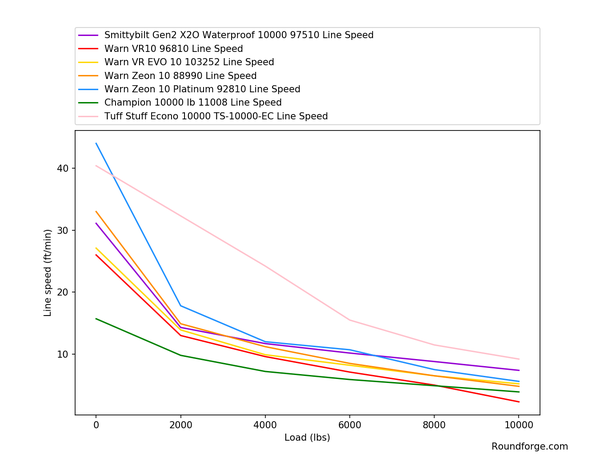
The fastest no-load winch here is the Warn Zeon 10 Platinum at 44 feet/minute. The second and third place winches are the Warn Zeon 10 and the Smittybilt X2O winches, at 33 ft/min and 31.1 ft/min respectively.
According to Warn, the Zeon Platinum has a special motor - this results in the no-load line speed of 44 feet/minute. This is one of the fastest line speeds you'll see of any winch.
At the maximum weight rating of 10000 lbs, the fastest winch is the Smittybilt X2O with a line speed of 7.38 ft/min. This is followed by the Warn Zeon 10 Platinum and the Warn VR EVO 10, at 5.6 ft/min and 5.2 ft/min respectively.
Note two things here:
- We are grouping the synthetic and steel cable winches together. Synthetic and steel cable don't have any effect on line speed
- We're going to ignore the Tuff Stuff winch because we think some data is missing for this winch.
Pulling Power per Cable Layer
Pulling power per cable layer is frequently ignored by winch buyers!
But you need to understand it in order to use your winch effectively out on the trail.
The gist is this:
The more winch line you have spooled on the winch drum, the less powerful your winch becomes.
All winches are rated at at their full capacity one layer of cable on the drum. This means that your winch has way less than its rated capacity when the winch line is fully wrapped up on the drum.
Let's take a look at our winches:
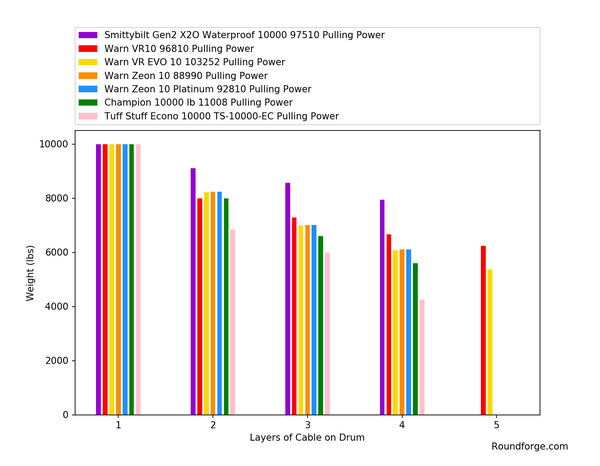
As we would expect, every winch can pull 10000 lbs with one layer of winch line on the drum. But then it starts dropping:
The Smittybilt X2O 10000 winches lose the least amount of power. At 4 layers on the drum, the Smittybilt is still pulling 7950 lbs. Warn's winches all generally have around the same power loss, so that the Warn VR EVO 10, Zeon 10, and Zeon 10 Platinum all are pulling 6103 lbs with 4 layers on the drum.
That seems pretty damning, but let's talk about tradeoffs:
In order to achieve that higher pulling power, Smittybilt uses a smaller winch drum diameter:
| Model | Drum diameter |
| Smittybilt X2O 10000 | 2.5" |
| Warn VR Evo 10 | 2.5" |
| Warn Zeon 10 | 3.15" |
| Warn Zeon 10 Platinum | 3.15" |
Drum diameter is important for two reasons:
- Smaller drums increase wear on your synthetic rope or steel winch cable.
- Smaller drums run hotter, and heat breaks down synthetic winch line.
So, keep the performance data in mind, but also remember the impact that drum diameter will have on your winch line.
Amp Draw vs. Load
You probably don't pay much attention to amp draw, but you should.
Ideally you want your winch to require as few amps as possible to operate. Realistically, though, you're probably just going to get what you get:
Most users shouldn't worry too much about amp draw, but you should be aware that your winch may discharge your battery faster than your alternator can charge it. It's a good idea to keep an eye on your battery voltage when you're winching and take breaks on long pulls so that your battery can recharge.
Remember:
A deeply discharged battery can be damaged and may be too discharged to restart your rig.
The higher performers of the 10000 winches we're looking at pull a lot of amps.
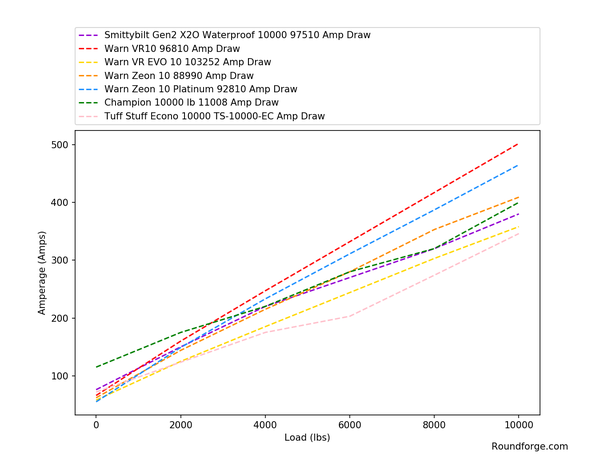
At no load, the Warn Zeon 10000 Platinum, Warn VR EVO 10000, and Warn Zeon 10000 draw the lowest amps at 55A, 58A, and 62A respectively. The Champion winch is an outlier with a pretty high draw of 115A.
| Winch | Amp draw at 0 lbs. | Amp draw at 10000 lbs. |
| Smittybilt Gen 2 X2O Comp 10000 and X2P 10000 (97510 and 98510) | 76 | 380 |
| Tuff Stuff Econo 10000 (TS-10000-EC) | 72 | 346 |
| Warn Gen 2 VR10-S and VR10 (96815 and 96810) | 66 | 502 |
| Warn Gen 3 VR EVO 10-S and 10 (103253 and 103252) | 58 | 358 |
| Warn Zeon 10-S and 10 (89611 and 88990) | 62 | 409 |
| Warn Zeon Platinum 10-S and Platinum 10 (92815 and 92810) | 55 | 465 |
| Champion 10000 lb (11008) | 115 | 400 |
At high loads, we see a much greater spread!
The Warn VR EVO draws 358A, the Smittybilt X2O draws 380A, and the Champion draws 400A. It's worth noting that these would all be considered "budget" winches. They are all generally less expensive and are fine for casual winching.
The Warn Zeon Platinum draws 465A - this is a lot, but it has the fastest no-load motor.
Note two things here:
- We are grouping the synthetic and steel cable winches together. Synthetic and steel cable don't have any effect on amp draw.
- We're going to ignore the Tuff Stuff winch because we think some data is missing for this winch.
Last updated: September 18, 2019
